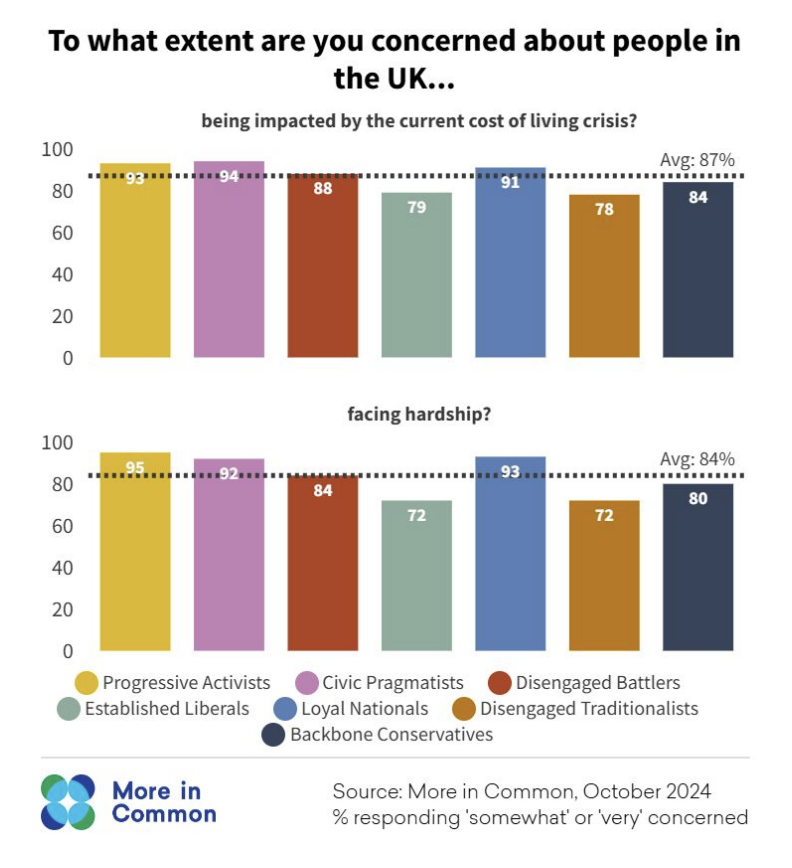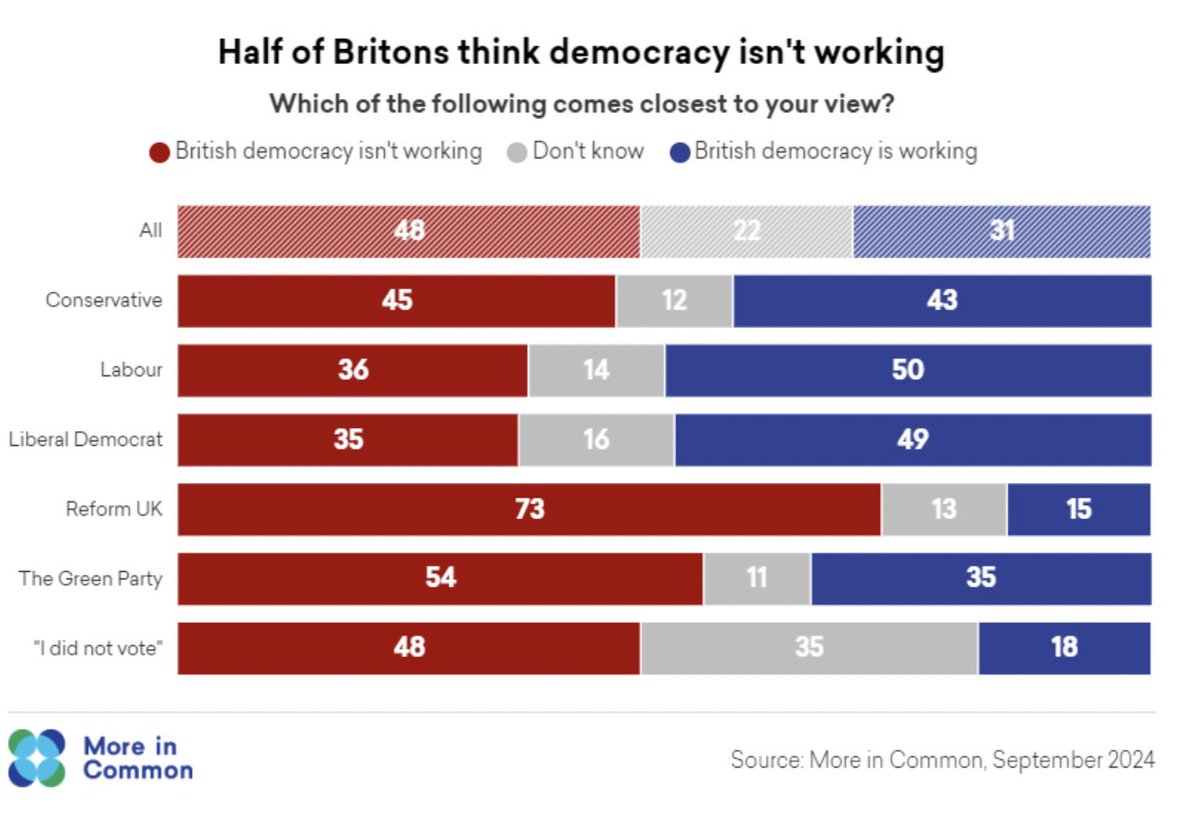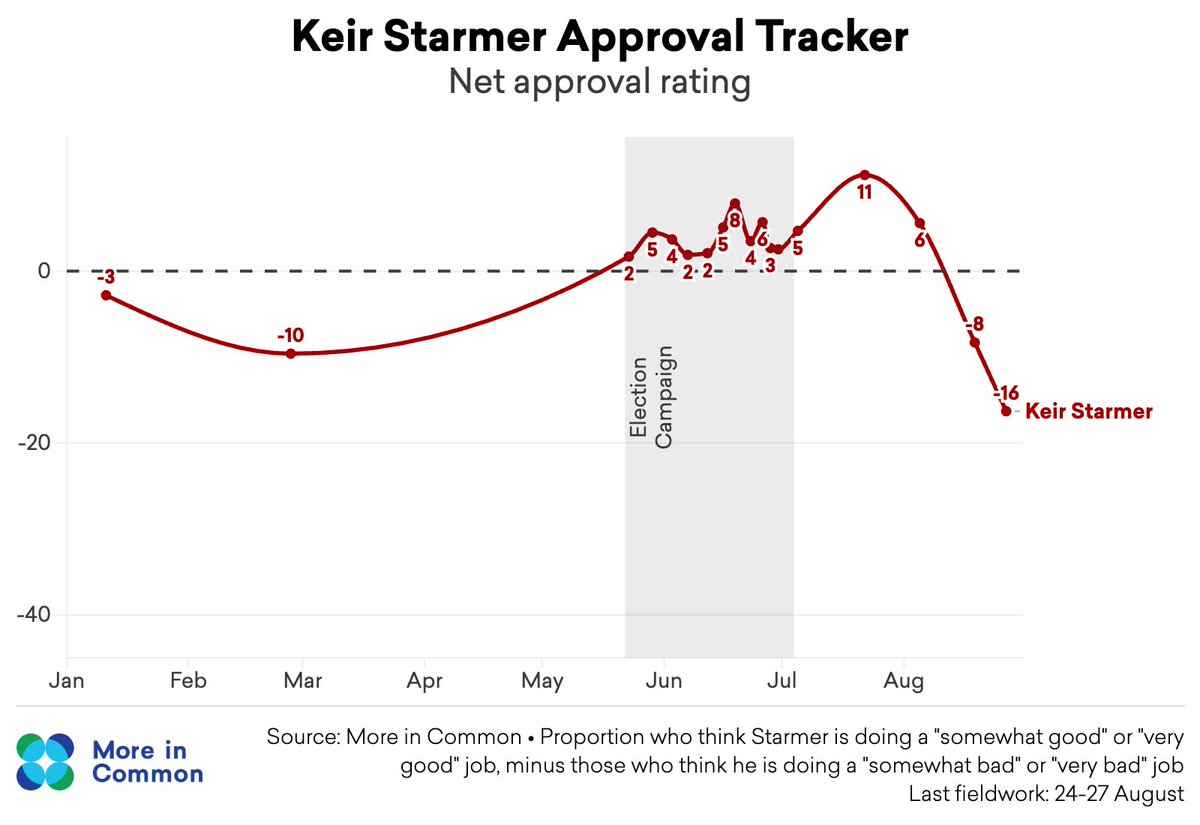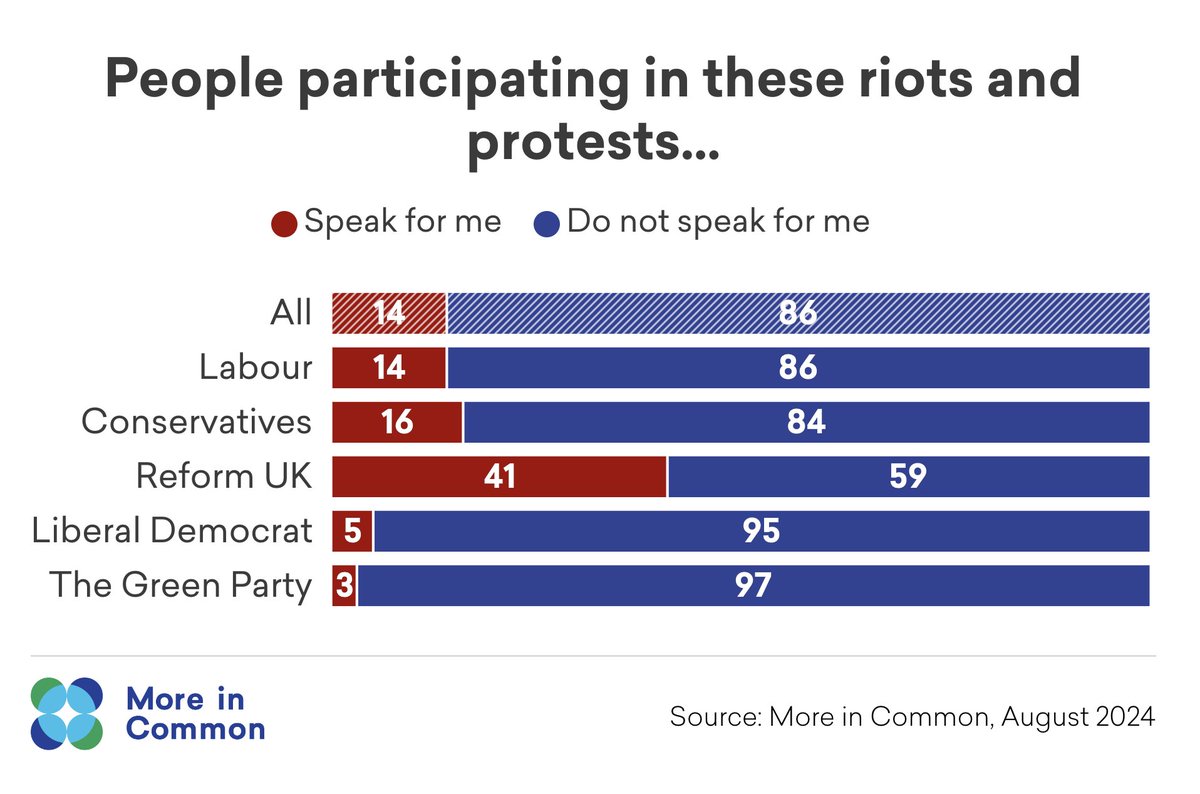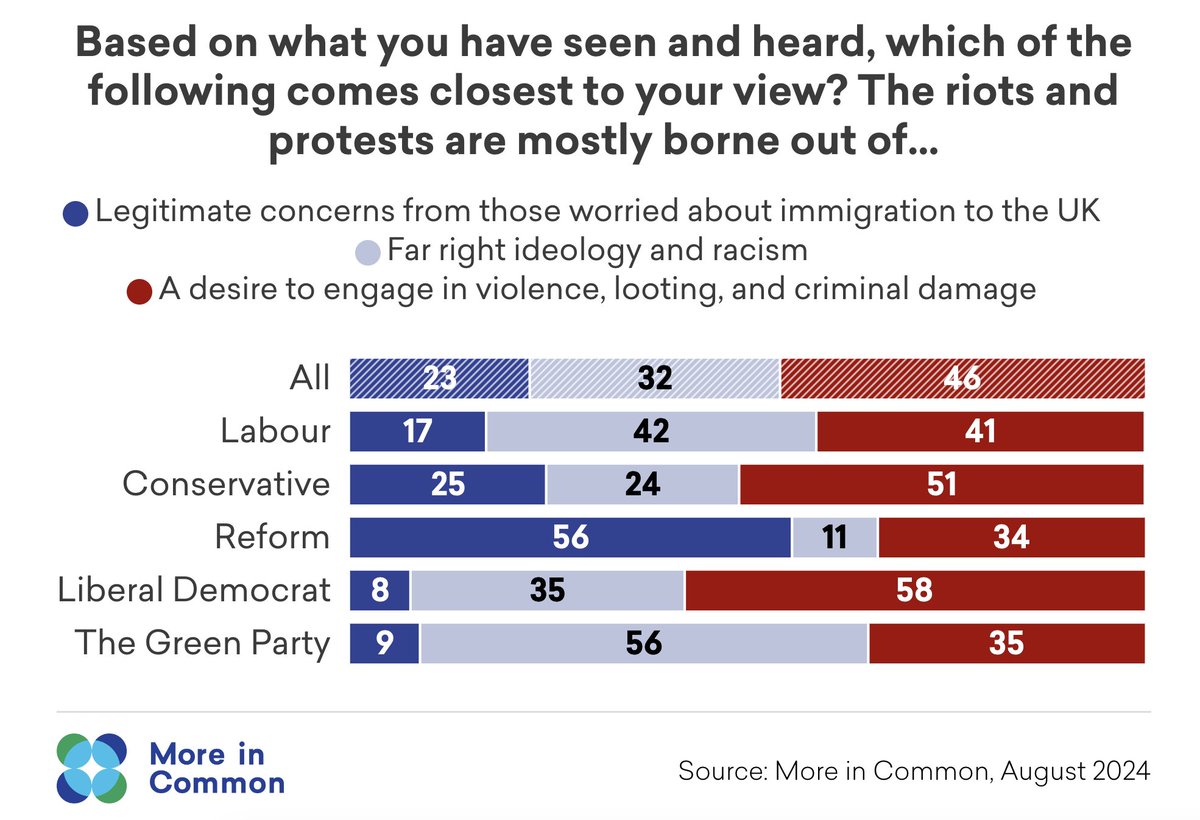🧵As the Government unveils plans to boost clean power, worth noting how much public sentiment has shifted to seeing clean energy not just as good, but as a no-brainer. All voter groups (inc Reform) are more likely to think renewables will cut cost of living than raise it 
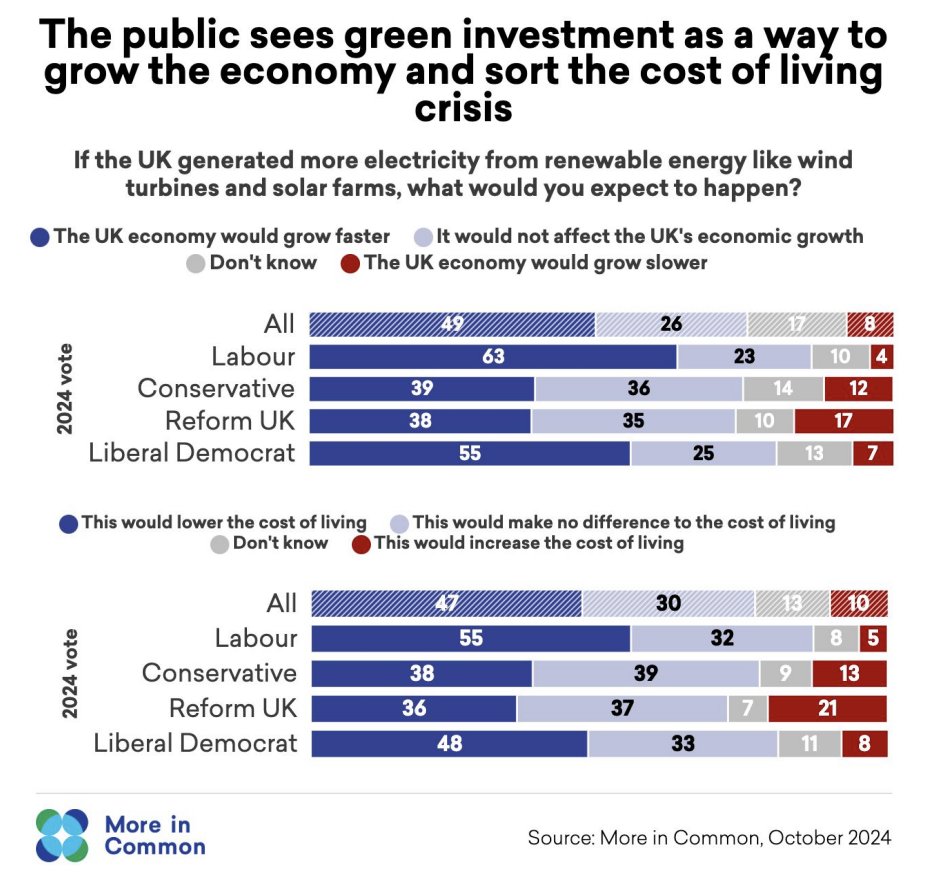
Opposition to building clean energy infrastructure is often distorted by those who are most vocal, but even more conservative segments of the electorate (highlighted in the red box) are more likely to support wind turbines in their area. 

More interesting is when you ask those opposed what they'd do in response, with the biggest chunk saying they would do nothing, though some say they'd vote against the party proposing it. 
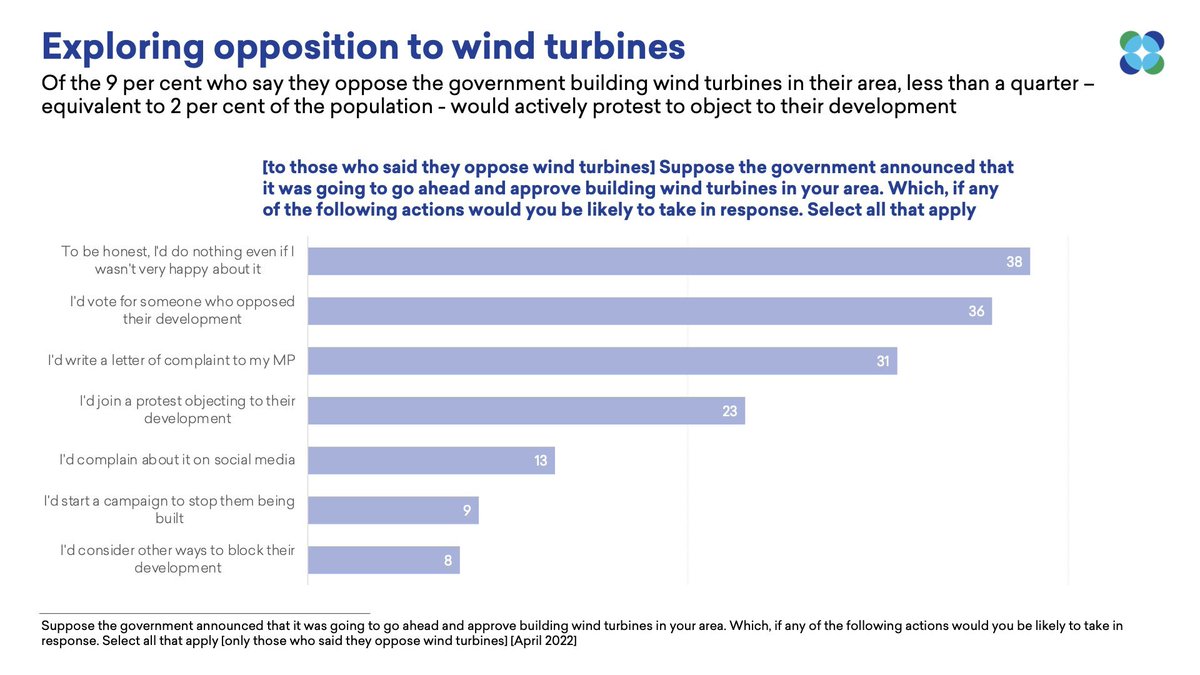
This is where the idea of paying people who accept clean energy infrastructure comes into its own. We found in 2022 that a £25 a month reduction in Bills would reduce the small number of those opposed to wind turbines in their area by half. 
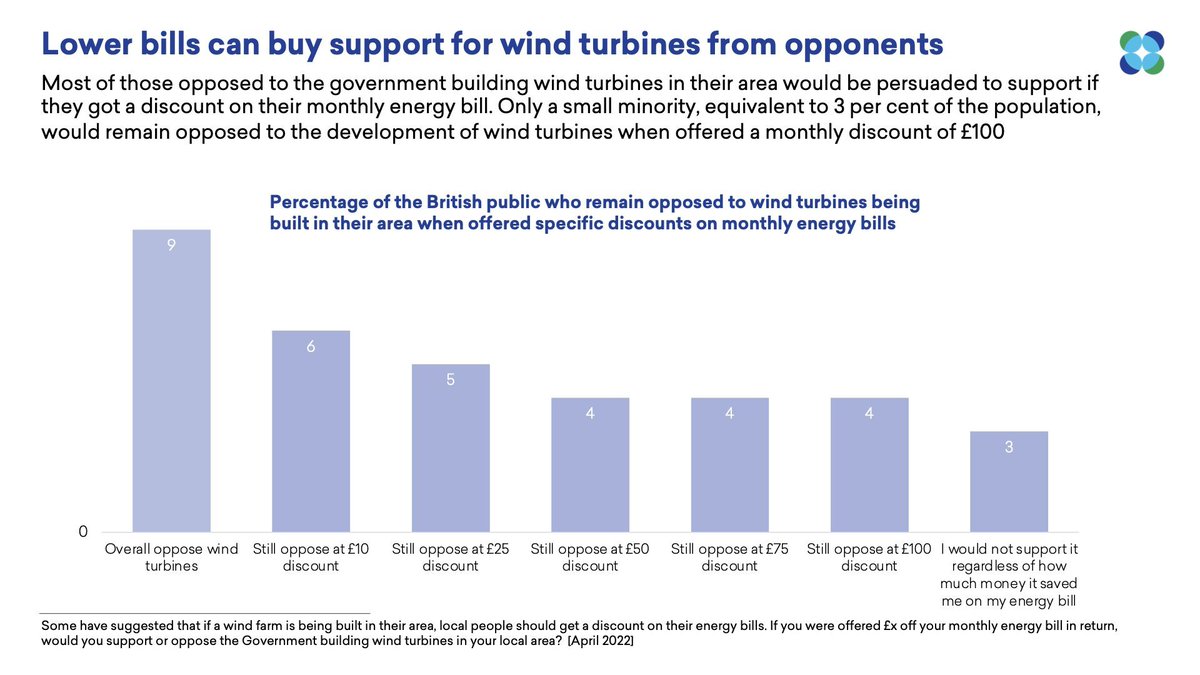
The public see reducing energy bills as the top job of the Energy Security Minister's top job. The only other factor that comes close is energy security. We see this focus groups people bring up energy security far more often recently? 
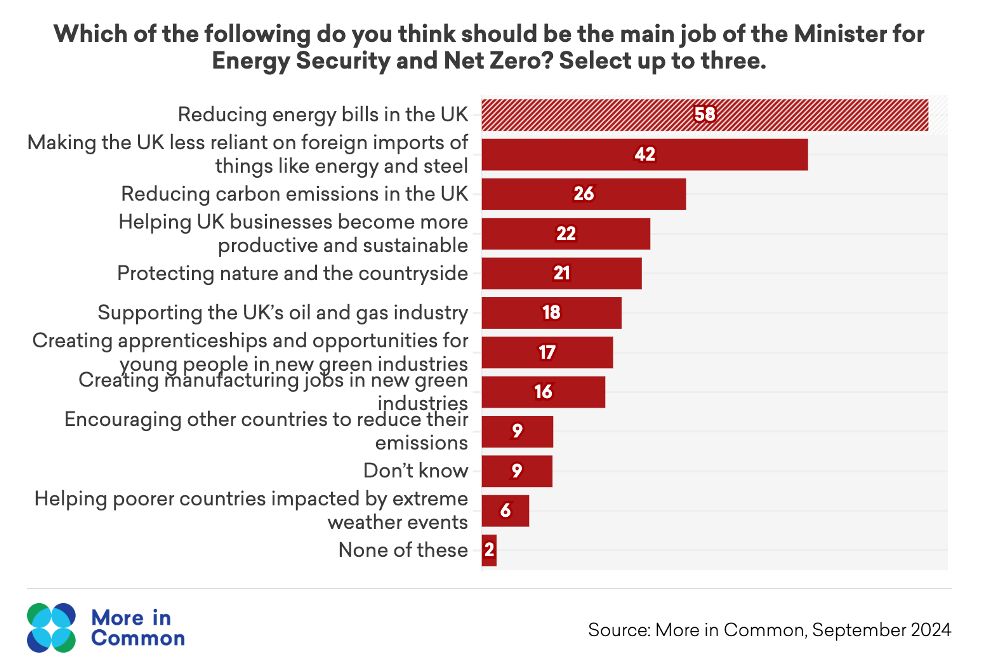
Why, the biggest shift seems to have come from Putin's invasion of Ukraine. The argument that 'we can't be dependent on mad men like Putin for our energy supply' is almost as compelling as bills as a reason that oil and gas are no longer seen as reliable energy sources. 
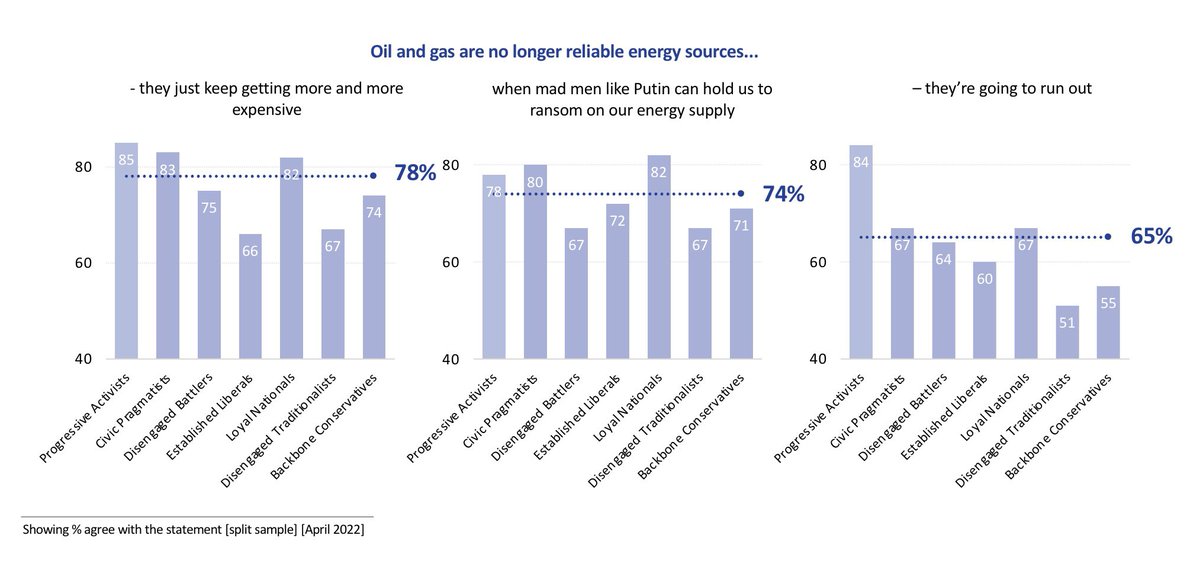
Asked another way, nearly 7 in 10 members of the public think that investing in renewables to reduce reliance on gas imports from countries like Russia is a convincing argument. 
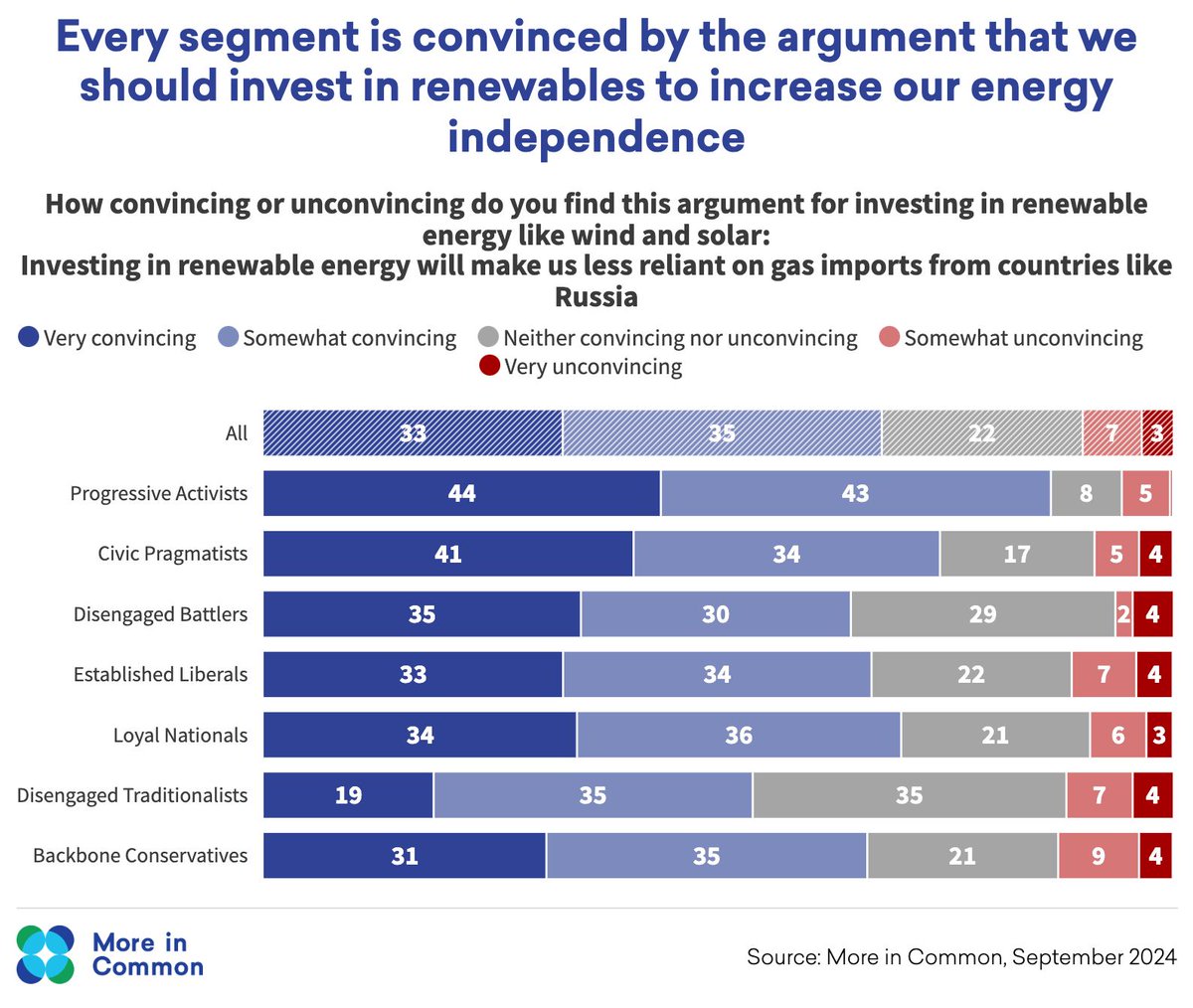
Finally have shared before but it is striking that there is not a single constituency where concern about climate change drops below 50%. In Clacton (to pick a constituency at random) 68% are worried about it. 
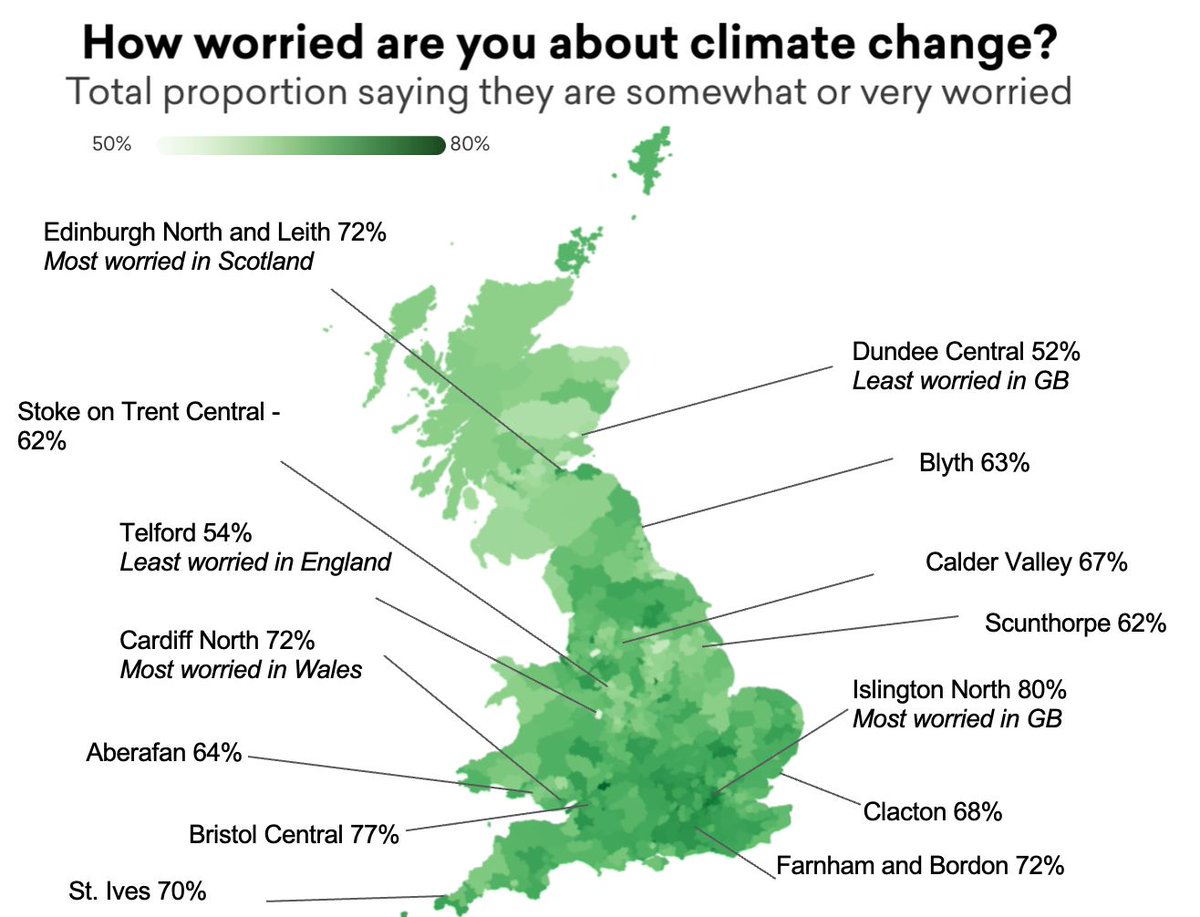
GB Energy is one of Labour's most popular policies to date for lots of reasons, but in particular because it taps both into people's concern about climate, desire to move to clean energy and belief the Government needs a more active role in energy markets. 

Addendum - I add because it's a peculiarly British thing, one of the strongest 'moral' motivators for Brits to support climate action isn't actually protecting people (though that is convincing) protecting nature and above all animals comes out on top. 
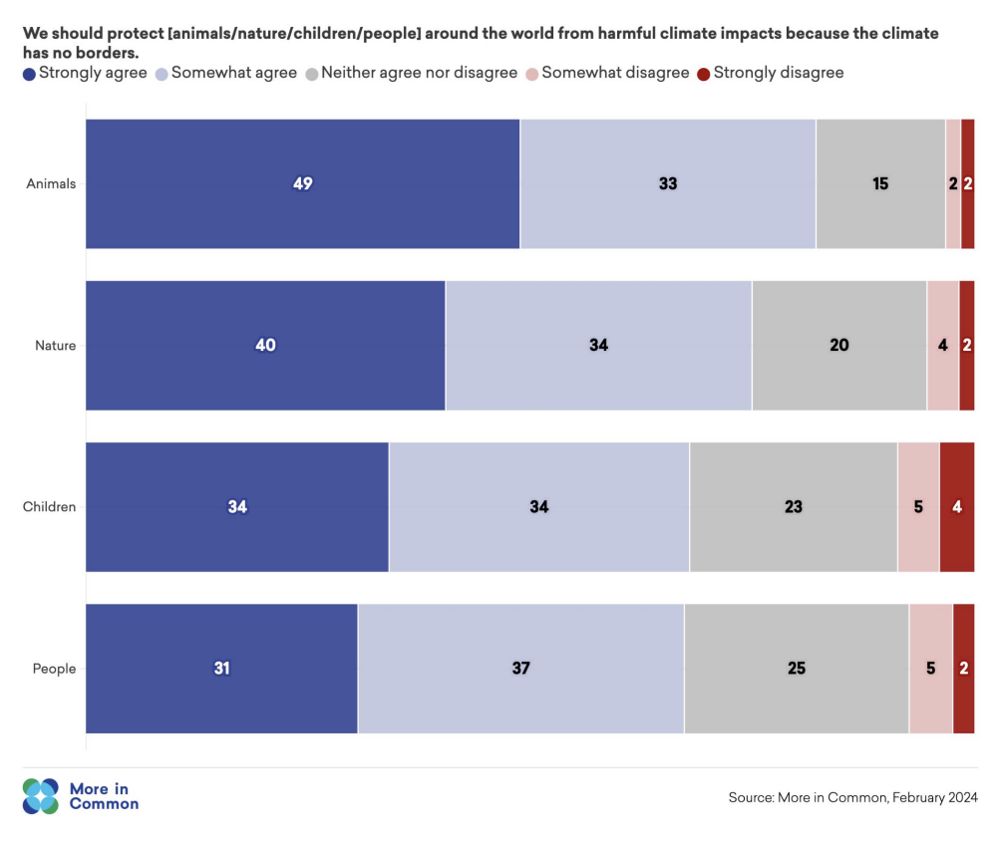
• • •
Missing some Tweet in this thread? You can try to
force a refresh




